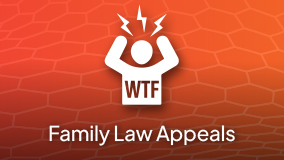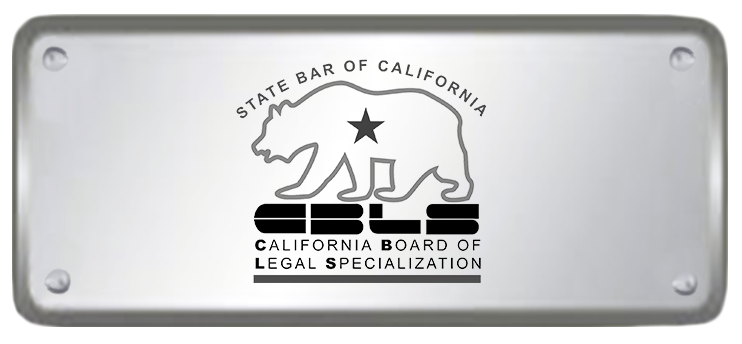CONTEMPT AND ENFORCEMENT IN A DIVORCE
In the realm of prejudgment or post-judgment divorce proceedings, contempt and enforcement issues can arise when one party fails to comply with court orders or engages in behavior that undermines the legal process. When faced with such circumstances, it is crucial to understand the rights, obligations, and potential consequences associated with contempt and enforcement in California family law cases. Many family law attorneys avoid contempt actions altogether because they do not understand the technical intricacies of what is essentially a criminal proceeding, including the higher burden of proof and Constitutional rights of the alleged contemnor. Contempt can be beneficial or detrimental to a family law case, depending on the specific facts, but should never be the result of a hasty decision. Antonyan Miranda has successfully prosecuted and defended contempt cases involving family law matters, including several lengthy trials.
Understanding Contempt in a California Divorce
Contempt refers to the willful violation of court orders or other conduct that is an affront to the court. In the context of divorce and family law proceedings, contempt typically involves the willful failure to comply with court orders related to payment of child and spousal support, child custody and visitation, or violations of domestic violence restraining orders. To prove contempt, the following elements must be established:
1. EXISTENCE OF A COURT ORDER:
There must be a valid court order in place that clearly articulates the party’s obligations.
2. KNOWLEDGE OF THE COURT ORDER:
The accused party must have been aware of the court order and its terms.
3. WILLFUL VIOLATION:
The failure to comply with the court order must be willful. A willful violation means a purpose or willingness to commit the act or make the omission. It does not require any intent to violate the law.
The defense to a charge of contempt is the inability to comply with the court order. The burden of proof of inability to comply is carried by the alleged contemnor, albeit at a lower evidentiary standard of preponderance of the evidence.
Consequences of Contempt in California Divorce
When an individual is found in contempt of court in a divorce or family law case, the court has the authority to impose various penalties and remedies to ensure compliance. Typically, sentencing depends on many factors, including the severity of the violation(s), number of violations, whether there are prior contempt convictions of the alleged contemnor, and what, if any, acts to remediate the violation have been undertaken by the alleged contemnor prior to the trial on the contempt. If convicted, sentences for contempt of court may include:
FINES:
The court may impose monetary fines or sanctions against a convicted contemnor.
ATTORNEY’S FEES AND COSTS:
The court may order a convicted contemnor to pay the attorney’s fees and costs incurred by the other party as a result of the contempt proceedings.
PROBATION:
The convicted contemnor may be sentenced to probation.
COMMUNITY SERVICE:
The court may order that a convicted contemnor perform community service.
CUSTODY:
The court may order that the convicted contemnor be remanded into custody in county jail.
Why You Need a Family Law Attorney When Seeking to Enforce Court Orders
When faced with contemptuous behavior or when it is alleged that you have committed contempt, it is essential to take immediate and strategic action. An experienced attorney that practices contempt cases can provide valuable assistance when dealing with contempt and enforcement issues in a California family law case.
LEGAL KNOWLEDGE AND ADVICE:
Attorneys experienced in contempt possess in-depth knowledge of the relevant statutes, case law, and court procedures pertaining to both the prosecution and defense of contempt. They can provide guidance on the specific legal requirements and options available in your case.
CASE ASSESSMENT:
An attorney experienced in contempt will review the facts of your situation and assess whether contempt has occurred and the viability of pursuing enforcement or, alternatively, strategies for defense. They can analyze the court orders, evidence, and applicable laws to determine the strength of your case.
STRATEGY DEVELOPEMENT:
Based on their expertise, an attorney experienced in contempt can develop a strategic plan tailored to your specific circumstances. They will assess the available options, discuss potential outcomes, and recommend the most effective course of action to enforce the court orders and address the alleged contemptuous behavior.
DOCUMENTATION AND EVIDENCE GATHERING:
Attorneys experienced in contempt understand the importance of marshaling evidence for proving or defending against contempt.
NEGOTIATION:
Experienced contempt attorneys can explore the possibility of resolving the issues through settlement, aiming for a resolution that protects your interests while avoiding protracted litigation.
LITIGATION:
If the contempt matter results in a trial, an experienced contempt attorney will represent you in all phases of the proceedings, including the arraignment. Unless the alleged contemnor is facing greater than 180 days in custody, all contempt trials are bench trials conducted without a jury.
Our experienced attorneys specializing in family law at Antonyan Miranda can provide invaluable assistance in navigating contempt and enforcement issues in a California divorce. We bring our legal knowledge, strategic guidance, negotiation skills, courtroom representation, and enforcement expertise to protect your rights and seek remedies for non-compliance with court orders. Call us at 619-696-1100 to speak with one of our Concierge attorneys, or visit us at www.expertdivorcelaw.com for more information.
FOLLOW US!
CONTEMPT AND ENFORCEMENT IN A DIVORCE
In the realm of prejudgment or post-judgment divorce proceedings, contempt and enforcement issues can arise when one party fails to comply with court orders or engages in behavior that undermines the legal process. When faced with such circumstances, it is crucial to understand the rights, obligations, and potential consequences associated with contempt and enforcement in California family law cases. Many family law attorneys avoid contempt actions altogether because they do not understand the technical intricacies of what is essentially a criminal proceeding, including the higher burden of proof and Constitutional rights of the alleged contemnor. Contempt can be beneficial or detrimental to a family law case, depending on the specific facts, but should never be the result of a hasty decision. Antonyan Miranda has successfully prosecuted and defended contempt cases involving family law matters, including several lengthy trials.
Understanding Contempt in a California Divorce
Contempt refers to the willful violation of court orders or other conduct that is an affront to the court. In the context of divorce and family law proceedings, contempt typically involves the willful failure to comply with court orders related to payment of child and spousal support, child custody and visitation, or violations of domestic violence restraining orders. To prove contempt, the following elements must be established:
1. EXISTENCE OF A COURT ORDER:
There must be a valid court order in place that clearly articulates the party’s obligations.
2. KNOWLEDGE OF THE COURT ORDER:
The accused party must have been aware of the court order and its terms.
3. WILLFUL VIOLATION:
The failure to comply with the court order must be willful. A willful violation means a purpose or willingness to commit the act or make the omission. It does not require any intent to violate the law.
The defense to a charge of contempt is the inability to comply with the court order. The burden of proof of inability to comply is carried by the alleged contemnor, albeit at a lower evidentiary standard of preponderance of the evidence.
Consequences of Contempt in California Divorce
When an individual is found in contempt of court in a divorce or family law case, the court has the authority to impose various penalties and remedies to ensure compliance. Typically, sentencing depends on many factors, including the severity of the violation(s), number of violations, whether there are prior contempt convictions of the alleged contemnor, and what, if any, acts to remediate the violation have been undertaken by the alleged contemnor prior to the trial on the contempt. If convicted, sentences for contempt of court may include:
FINES:
The court may impose monetary fines or sanctions against a convicted contemnor.
ATTORNEY’S FEES AND COSTS:
The court may order a convicted contemnor to pay the attorney’s fees and costs incurred by the other party as a result of the contempt proceedings.
PROBATION:
The convicted contemnor may be sentenced to probation.
COMMUNITY SERVICE:
The court may order that a convicted contemnor perform community service.
CUSTODY:
The court may order that the convicted contemnor be remanded into custody in county jail.
Why You Need a Family Law Attorney When Seeking to Enforce Court Orders
When faced with contemptuous behavior or when it is alleged that you have committed contempt, it is essential to take immediate and strategic action. An experienced attorney that practices contempt cases can provide valuable assistance when dealing with contempt and enforcement issues in a California family law case.
LEGAL KNOWLEDGE AND EXPERTISE:
Attorneys experienced in contempt possess in-depth knowledge of the relevant statutes, case law, and court procedures pertaining to both the prosecution and defense of contempt. They can provide guidance on the specific legal requirements and options available in your case.
CASE ASSESSMENT:
An attorney experienced in contempt will review the facts of your situation and assess whether contempt has occurred and the viability of pursuing enforcement or, alternatively, strategies for defense. They can analyze the court orders, evidence, and applicable laws to determine the strength of your case.
STRATEGY DEVELOPMENT:
Based on their expertise, an attorney experienced in contempt can develop a strategic plan tailored to your specific circumstances. They will assess the available options, discuss potential outcomes, and recommend the most effective course of action to enforce the court orders and address the alleged contemptuous behavior.
DOCUMENTATION AND EVIDENCE GATHERING:
Attorneys experienced in contempt understand the importance of marshaling evidence for proving or defending against contempt.
NEGOTIATION:
Experienced contempt attorneys can explore the possibility of resolving the issues through settlement, aiming for a resolution that protects your interests while avoiding protracted litigation.
LITIGATION:
If the contempt matter results in a trial, an experienced contempt attorney will represent you in all phases of the proceedings, including the arraignment. Unless the alleged contemnor is facing greater than 180 days in custody, all contempt trials are bench trials conducted without a jury.
Our experienced attorneys specializing in family law at Antonyan Miranda can provide invaluable assistance in navigating contempt and enforcement issues in a California divorce. We bring our legal knowledge, strategic guidance, negotiation skills, courtroom representation, and enforcement expertise to protect your rights and seek remedies for non-compliance with court orders. Call us at 619-696-1100 to speak with one of our Concierge attorneys, or visit us at www.expertdivorcelaw.com for more information.





















